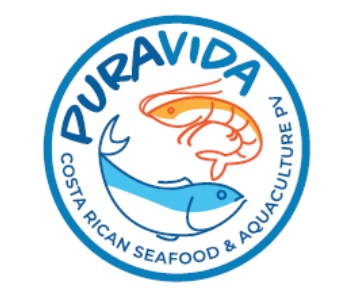Barbados, Belize and Costa Rica are looking beyond the pandemic and climate shocks by developing and implementing national trade strategies strongly linked to resilience, conservation and the sustainable use of their marine resources.
© Maren Winter
A regional experience-sharing workshop held on 23 and 24 September highlighted the need to adopt, elaborate and implement evidence-based and policy-coherent oceans economy and trade strategies (OETS) under the UN Convention on the Law of the Sea (UNCLOS) framework.
UNCTAD organized the workshop in conjunction with the UN Division for Ocean Affairs and the Law of the Sea (DOALOS), as part of a project to boost the ocean economy.
“The value of ocean assets has been estimated to be at least $24 trillion and it could be more,” said UNCTAD Deputy Secretary-General Isabelle Durant. “Understanding the value of oceans and the trade and governance aspect to sustainably manage them can support millions of livelihoods globally and ensure prosperity for all.”
Costa Rica
Applying the OETS approach, the project identified marine coastal fisheries and big pelagics as the most promising sectors.
As a result, Costa Rica is developing its first collective certification mark (Pura VidaTM) for sustainable fish, seafood and aquaculture products. The mark to be launched in the last quarter of 2021 guarantees that such products are of high quality and sustainable.
Fishermen and other stakeholders who implement Pura Vida’sTM sustainability ethos can use the mark.
“Through the OETS collective branding strategy, Costa Rican fishery and aquaculture products can compete and be distinguished in international markets,” said Andrés Valenciano, Costa Rica’s minister of foreign trade.
Costa Rica is also formalizing the employment of fishers, boosting domestic demand for fisheries products, and working on doubling its marine areas of responsible fisheries from 11 to over 20 in the next few years.
Belize
Belize: Multi-finfish baskets
Belize’s minister of the blue economy and civil aviation, Andre Perez, announced that despite COVID-19 pandemic shocks, the country’s GDP growth estimates over the last six months exceeded the 2% projected by IMF, with its seafood industry recording an excellent performance.
“We fully support the OETS project and are committed to ensuring Belizean fishing communities, stakeholders and vulnerable groups continue to receive fair and enhanced economic benefits from our blue resources,” he said.
The OETS project in Belize developed a science-based adaptive multispecies finfish management plan that complements the country’s finfish data collection methodology.
These are expected to introduce new measures to promote the sustainable management of the marine capture fisheries and seafood manufacturing sectors, encourage great export and tourist consumption, while reducing illegal fishing.
This approach will directly improve the livelihoods of more than 2,500 fishers and indirectly benefit more than 15,000 Belizeans.
Barbados
Among the project’s three beneficiary countries, Barbados reported the greatest COVID-19 impact in terms of its capacity to receive technical assistance and implement related activities.
Despite the pandemic-induced challenges, the OETS project continued, with the country receiving multi-agency technical assistance on fisheries and coastal and marine environmental services and legal and institutional frameworks governing ocean-based economic sectors.
The latter contributed to the selection of the pelagic longline fishery as the most promising subsector for further development. This will be followed by country-driven programming and delivery of subsequent activities on climate-resilient fisheries, based on UNCTAD’s ocean economy pillars.
“This OETS project through the current workshop is promoting and allowing more South-South learning opportunities in the area of sustainable ocean economy development,” said Sonia Foster, permanent secretary in the ministry of maritime affairs and the blue economy.
COVID-19 impacts and other vulnerabilities
The COVID-19 pandemic hit the tourism-dependent economies of small island developing states (SIDS) hard, slashing their GDP by about 7% due to the collapse in international tourism. During the first weeks of the pandemic, marine fisheries and aquaculture production also decreased by between 40% (in the Americas) and 80% (in SIDS).
All the three beneficiary countries reported economic disruption that could last for years due to the pandemic and the measures put in place to contain it.
Despite some interruptions in project implementation – worsened by climate-related events – the experiences shared at the workshop demonstrated that resilience, adaptability, transparency and cooperation enhance preparedness against climate, health and man-made vulnerabilities.
Key messages to forge ahead
- Adaptive fishery management/improvement plans conducted through inclusive stakeholder engagement, supportive and dynamic regulatory and policy frameworks are relatively low-cost options that promote sustainable fisheries, complement sustainability certifications and secure livelihoods in coastal developing countries and SIDS.
- Investment in digitalization and innovative technologies to upgrade infrastructure and skills through new partnerships, financing and regional economic integration can support ocean governance and research, promote sustainability and increase market access and value addition.
- Limited national fisheries data remains a key challenge for scientific and evidence-based processes; the lack of robust data and human and financial resources negatively affects traceability, monitoring and surveillance, which in turn become linked to market access barriers.
- Coordination and information sharing should be strengthened (for example, by linking fisheries with tourism and marine protected areas, facilitating exports through trade agreements and key markets).
- Promotion of national and regional markets and tourism, using online platforms and e-commerce is necessary for diversification, product development and innovation.
- Achievement of the Sustainable Development Goals and the COVID-19 pandemic responses should be complementary, integrating actions to tackle emergency and support recovery.
As part of the wider impact of the OETS project in the Caribbean, UNCTAD also provided technical support to the Caribbean Regional Fisheries Mechanism (CRFM) in its collaboration with the Development Bank of Latin America (CAF) and the Food and Agriculture Organization of the United Nations (FAO).
This support will help establish a blue economy and sustainable fisheries initiative, envisaged to create regional market mechanisms to support fisheries value chains and sustainable development in the region.


 Applying the
Applying the 